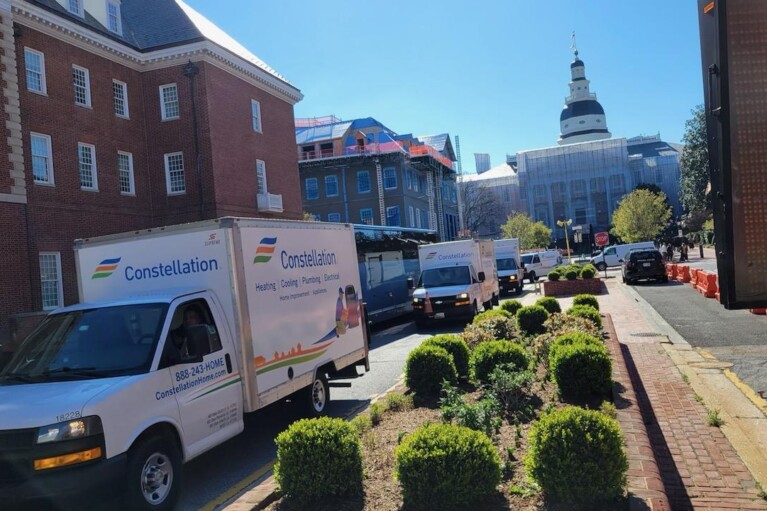Advocates Challenge State Senate GOP Opposition to November Mail-In Election
Advocates for disability rights and other groups lobbied for a mail-in ballot for November’s election Friday morning, one day after Maryland Senate Republicans announced their opposition to such a plan, claiming vote-by-mail could lead to voter fraud.
In a letter to the State Board of Elections Thursday, Senate Minority Leader J.B. Jennings (R-Harford) and Minority Whip Stephen S. Hershey Jr. (R-Upper Shore) raised a red flag over errors in Maryland’s June 2 primary. They say errors in that largely mail-in primary mean the state should hold a traditional in-person election in the fall.
Responding to the COVID-19 outbreak and concerns about in-person voting, Gov. Lawrence J. Hogan Jr. (R) had ordered that the primary be held largely by mail. Even though the primary saw the state’s highest voter turnout in years, many voters, particularly those in Baltimore City, received late ballots or didn’t receive ballots at all. In-person voting centers were overwhelmed with long lines and weren’t always accessible for voters with disabilities, advocates said.
Maryland Senate President Bill Ferguson (D-Baltimore City) and Senate Education, Health and Environmental Affairs Committee Chairman Paul G. Pinsky (D-Prince George’s) recommended on Tuesday a “hybrid mail-in preferred” election in November to avoid the long lines and late ballots that marred the primary. They said expanding in-person voting centers, rolling out early in-person voting, providing more ballot drop-off boxes and demanding greater transparency are the keys to a successful November election.
“Specifically, a ‘hybrid mail-in preferred election’ would require the Board to affirmatively mail General Election ballots to all registered voters in Maryland, and would provide expanded opportunities for in-person voting than those provided in [the] June 2 Primary for those voters who either do not receive ballots in the mail or who strongly prefer to vote in-person,” Pinsky and Ferguson wrote in a Tuesday letter to the State Board of Elections.
But Jennings and Hershey raised concerns that mail-in ballots could be sent to wrong addresses if voters had moved, or to dead voters still on Maryland’s registration lists.
“Sending thousands of unsolicited ballots to voters who have moved since they last voted will litter the state with unclaimed ballots and create serious opportunities for voter fraud,” the lawmakers wrote.
Election officials have sworn not to repeat errors of the June 2 election, which was the first statewide largely mail-in primary in Maryland’s history. Linda Lamone, Maryland’s top election administrator, previously blamed a printing vendor for some of the late or incorrect ballot deliveries.
While errors did occur in the June 2 primary, it’s unclear if there were any attempts at voter fraud. Recent research has shown that vote-by-mail elections are not prone to fraud. The Brookings Institution noted in a recent article that states with vote-by-mail elections in place see very low rates of attempted fraud.
A recent Washington Post analysis of mail-in ballots found a 0.0025% rate of voter fraud.
A host of advocates wrote a separate letter to Hogan on Friday, urging him to adopt a mail-in election format for November.
Among groups that signed the letter were Maryland PIRG, Common Cause Maryland, Reverend Kobi Little of the Baltimore NAACP, the ACLU of Maryland, the League of Women Voters of Maryland and Disability Rights Maryland.
“Because of the ongoing COVID-19 public health crisis, we cannot assume it will be safe to run our November elections with predominantly in person voting,” the advocates wrote to Hogan. “We do know that delaying the decision will jeopardize SBE’s ability to run a safe, secure and efficient election process, and could lead to even more problems than those experienced in the Primary Election.”
The advocates said that vote-by-mail elections are a “safe, secure way for eligible voters to participate in elections during the COVID-19 pandemic,” but also recommended that elections officials have more in-person polling centers in November.
Jennings and Hershey agreed with many of Ferguson and Pinsky’s recommendations to election officials, which include calls for more transparency and accountability from the State Board of Elections, but said another mail-in election would be a mistake.
“It would be foolish to repeat the same failed and expensive process for the larger General Election,” the Republican senators wrote.
The Republican senators say voters who aren’t comfortable voting in a traditional vote-by-mail election in November should use Maryland’s absentee ballot system. Jennings and Hershey wrote that members of the Senate Republican Caucus would support an earlier deadline for requesting an absentee ballot to give election staff time to meet demand.
Election officials have yet to make a recommendation to Hogan on how to conduct the November election.




 Creative Commons Attribution
Creative Commons Attribution